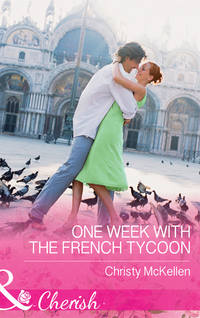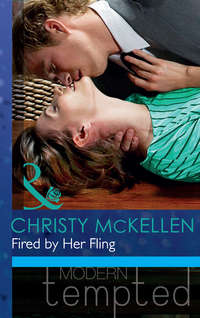
Полная версия
British Bachelors: Tempting & New: Seduction Never Lies / Holiday with a Stranger / Anything but Vanilla...
At first they’d called themselves Scattergun, and it was only when they’d been offered their first recording contract that they changed their name to Descent, soon scoring their first huge, groundbreaking hit with Easy, Easy.
Tavy went on reading about the tours, the sell-out concerts, the awards, all accompanied by a riotous, unbridled lifestyle, fuelled by alcohol and, it was hinted, drugs, that apparently became the stuff of legends. Or horror stories.
There were more pictures too, involving girls. She recognised a lot of them—models, film and TV stars, other musicians. The kind who made the covers of celebrity magazines. But not usually half-dressed, dishevelled and hung-over. And many of them entwined with Jago.
The narrative was punctuated by scraps of Descent’s music, raw, raunchy, ferocious, and available with one click.
It was, she thought with shocked disbelief, like discovering there were actually aliens on other planets.
Making her realise just how sheltered her life in Hazelton Magna had been from the overheated world of rock music, reality television and instant celebrity. Making her see why Jago’s arrival could well be regarded locally as an unwarranted invasion. How, in spite of her regrettable incursion into his grounds, he was the real trespasser.
She wanted to stop reading, but something made her continue. Some compulsion to know everything, as if that could possibly make her understand the inexplicable.
‘Sometimes the demons you find there make the return journey with you...’
His words. And she shivered again.
The band, she read, had broken up three years earlier, citing ‘artistic differences’. But they had reunited a year later, with a UK tour planned. But this project had been cancelled following Pete Hilton’s sudden departure, caused, it was rumoured, by a fight with Jago Marsh. After which Descent had come to an abrupt end, the other band members dispersing, said the article, ‘to pursue other interests’.
Like buying neglected country houses, thought Tavy, returning dispiritedly to the computer’s home page. And her researches had done nothing to allay her fears or quell her inner disturbance over Jago Marsh. On the contrary, in fact.
Because it was obvious from the tone of the article that, to him, women were merely interchangeable commodities, a series of willing bodies to be enjoyed, then discarded, which was only serving to deepen her resentment of him and the way he’d treated her.
His arrogant assumption that she would enjoy being in his arms.
A ‘treat of the week’ for the village maiden, no doubt, she thought furiously.
What she needed now was something to take her mind off it all. She required an occupation, and in the absence of any correspondence, she decided to tidy the stationery cupboard, and check whether more letterheads, report forms and prospectuses needed to be ordered.
Demonstrate my efficiency, she thought, pulling a face.
To her surprise, the cupboard was locked, but there was a spare key in Mrs Wilding’s desk drawer, eventually locating it under a bulky folder tied up with pink tape which she lifted out and left on top of the desk.
She opened the door, and inspected and rearranged each shelf with methodical care noting down, as she’d suspected, that more uniform lists were needed, plus compliment slips and letterheads. She was kneeling, examining a box of old date stamps that had been pushed to the back of the bottom shelf and forgotten, when an icy voice behind her said, ‘What do you think you’re doing?’
Tavy turned and saw Mrs Wilding glaring down at her.
‘Just checking the supplies.’ She got up, feeling faintly bewildered. ‘I realised it was some time since I did so.’
‘But the cupboard was locked.’
‘I got the key from your drawer.’
‘Well, in future, kindly do only what you’re asked.’
Tavy watched as Mrs Wilding relocked the cupboard, ostentatiously putting the key in her handbag, then replaced the folder in the drawer and slammed it shut.
She said quietly, ‘I’ve made a note of what we need to re-order from the printers, Mrs Wilding. Shall I leave it with the library list?’
‘You may as well.’ Mrs Wilding paused. ‘I shan’t need you again today, Octavia. You can go home.’
Faced with an afternoon of freedom at any other time, Tavy would have turned an inner cartwheel. But this felt like being sent away in some kind of disgrace—as if she’d been caught prying—when she was simply doing her job. Because if any of the school’s stationery had run out, she knew who’d have been blamed.
She managed a polite, ‘Thank you, Mrs Wilding,’ then collected her jacket and her bag, and went to find her bicycle.
She was halfway down the drive, when she heard the sound of a powerful engine approaching, and drew in to the verge, just as a big Land Rover came round the corner, with ‘White Gables Stud’ blazoned on its sides, and Norton Culham at the wheel.
Tavy couldn’t remember him ever calling at the school before, so it was truly turning into a day of surprises, although Mr Culham driving past without appearing to notice her was certainly not one of them.
Everything normal there, she thought, giving a mental shrug and continuing on her way. Passing the church, she saw an unfamiliar car parked outside, and remembered the diocesan surveyor was expected.
Damn, she thought. I meant to wish Dad luck.
As she wheeled her bike up the Vicarage drive, she saw there was something in the porch, leaning against the front door, only to realise as she got closer that it was a large florists’ bouquet—two dozen crimson roses beautifully wrapped and beribboned.
She picked them up carefully, inhaling their delicate exquisite fragrance, then detached the little envelope from the outer layer of silver-starred cellophane, and took out the card.
There were just two words. ‘Peace offering.’
No sender’s name, but she knew exactly who needed to make this kind of atonement and whispered, ‘Patrick.’
This wonderful, extravagant, passionate gesture more than made up for the apologetic phone call that she’d expected but never received.
Smiling, she let herself into the house, and took the flowers through to the kitchen. She’d need at least two if not three vases for them. And wasn’t there something about cutting the stems and bruising them in order to prolong the blooming? Because she wanted to keep them fresh not just for days but weeks.
She took out her mobile and, for once, because she wanted to reassure him that peace had indeed broken out, she called him at work.
He answered immediately. ‘Tavy?’ He sounded surprised and none too pleased. ‘What is it? This isn’t a good time. I have a client waiting.’
‘But you must have known I’d ring,’ she said. ‘To thank you, and say how truly beautiful they are, and how thrilled I am.’
There was a pause. Then: ‘I don’t follow you,’ he said. ‘What’s “truly beautiful”? What are you talking about?’
‘Your peace offering,’ she said, her voice lilting. ‘The lovely flowers you just sent me.’
‘Flowers?’ Patrick’s tone was impatient. ‘I never sent any flowers. Why would I? It must be a mistake by the florist—or someone’s playing a joke on you. I suggest you get it sorted. Now I really have to go. I’ll call you later.’
He disconnected, leaving Tavy standing motionless, clutching the phone, and staring at the bouquet lying on the kitchen table, as if each long-stemmed blossom had suddenly turned into a live snake.
‘No,’ she said aloud, her voice clipped and harsh in the silence. ‘It’s not true. They can’t be from—him. I don’t—I won’t believe it.’
Peace offering...
She was trembling, her stomach churning in a mix of incredulity, confusion and disappointment. She brought her fist up to her mouth, biting down hard on the knuckle, trying to distract one pain with another.
She’d believed Patrick had sent the flowers because he’d spoiled the previous evening by getting stupidly and aggressively drunk, and she’d expected him to show a measure of remorse. But his attitude on the phone indicated quite clearly that was the last thing on his mind.
She didn’t want to speculate what Jago Marsh’s motivation might be. She only knew that to receive flowers—and red roses, the symbol of love at that—from someone as cynically amoral as he was, had to be a kind of degradation.
Suggesting to her where they really belonged. She snatched the bouquet from the table and marched out of the house, down the drive to where the bins were awaiting the weekly refuse collection, thrusting the flowers on top of the kitchen waste.
‘Good riddance,’ she muttered as she went back to the kitchen.
Back in the kitchen, she picked fresh herbs from the pots outside the back door to add to the omelettes she was planning for lunch in case the surveyor joined them, then set about assembling the ingredients for supper’s cottage pie. The browned meat was simmering nicely on the stove with diced onion and carrot when her father returned.
‘Well, this is a pleasant surprise,’ he said, smiling with an obvious effort.
‘I was given the afternoon off.’ Tavy saw with concern the bleakness in his eyes.
‘Because we have a visitor,’ he went on.
So the surveyor was with him, she thought, summoning a welcoming smile. Which froze as Jago Marsh followed him into the kitchen, carrying, she saw with horror, the roses she’d put in the bin only a short while before.
‘And also something of a mystery,’ her father added. ‘We found these beautiful flowers outside, apparently thrown away.’
‘I suggested you might be able to shed some light on the subject.’ Jago put the bouquet back on the kitchen table, his mouth twisting ironically as he studied her flushed face. ‘Can you?’
‘Not really,’ said Tavy, keeping her voice steady with an effort. ‘I—I found them on the doorstep when I got home. They’re obviously a mistake.’
‘If so, they’re an expensive one,’ he commented levelly.
‘So I—disposed of them,’ she added lamely, not looking at him.
‘What a shame,’ said the Vicar. ‘I suppose we should try and trace the recipient, even though the card seems to be missing.’
That, thought Tavy, was because it was currently burning a hole in her pocket.
Aloud, she said, ‘Maybe they just weren’t wanted. And ours was the nearest bin.’
‘Ah,’ said her father. ‘A token of unrequited love, perhaps. How sad. In which case I’ll take them over to the church, where they’ll make a welcome change from Mrs Rigby’s everlasting spray chrysanthemums.’ He lifted the bouquet carefully from the table. ‘Jago came to return the book I lent him, my dear. See if you can persuade him to stay for lunch.’
He strode purposefully out and a few seconds later Tavy heard the front door close behind him.
Leaving her alone. With him. In the world’s most loaded silence.
Which he was the first to break. ‘So,’ he commented sardonically. ‘Not peace but a sword?’
She lifted her chin. ‘Did you ever doubt it?’
He looked at the mutinous set of her mouth and smiled. ‘There were odd moments,’ he drawled.
‘In your dreams, Mr Marsh,’ she said, her breath quickening. She began to whisk the eggs in an effort to hide that her hands were trembling. ‘And there is no invitation to lunch,’ she threw at him. ‘In case you were hoping.’
‘I’m not that much of an optimist.’ He looked at the bunch of herbs on the chopping board. ‘Besides, you might be tempted to include hemlock in my share.’ He turned to the door. ‘However, please give your father my regards, and tell him I look forward to our next meeting.’
And there would be one, Tavy thought, as she added the chopped herbs and seasoning to the eggs. It was almost inevitable. She would simply arrange not to be around when it happened.
‘Has Jago gone?’ her father asked on his return, sounding disappointed.
‘Unfortunately, yes,’ Tavy said with spurious regret. ‘He has places to go, people to see. You know how it is.’ She paused. ‘Anyway, how was the meeting?’
‘Not good,’ Mr Denison said heavily. ‘It’s bad news, I’m afraid.’
Tavy abandoned the eggs and made two mugs of strong tea instead. She sat beside her father at the table and took his hand. ‘I suppose it’s the roof.’
‘That’s certainly part of it. Apparently, it’s gone beyond repair and would need totally replacing.’ He paused. ‘But the main problem is the tower.’
‘So what does he suggest?’
‘That we go on as usual until he has given his report to the Bishop and some decision about Holy Trinity’s future has been reached.’
He shook his head. ‘And, as he pointed out, it’s just another church—Victorian Ordinary instead of Victorian Gothic—with no great age or historical significance that might entitle it to special treatment. And, of course, only a small congregation.’
He took a deep breath. ‘I suspect the Bishop means to close it.’
‘But he can’t do that,’ Tavy protested. ‘It’s an important part of village life.’
He shook his head. ‘Sadly, darling, it’s happened to other churches in the diocese with similar problems.’ He sighed. ‘And as you know the Bishop is a moderniser, so we haven’t always seen eye to eye in the past.’
Tavy swallowed. ‘Would we have to leave this house?’
‘Almost certainly. It’s a valuable piece of real estate—more so than the church itself, I fear.’ He added quietly, ‘I’ll probably be asked to join the team ministry in Market Tranton.’
As Tavy brought the omelettes to the table, she said, ‘Dad, we have to fight this closure. Try to raise some serious money to kick-start the restoration fund again.’
‘I’ve been thinking along the same lines,’ he said. ‘But where would we start?’ He shook his head. ‘What we really need is a miracle or a millionaire philanthropist, but they’re in short supply these days.’
It was a good omelette but, to Tavy, it tasted like untreated leather. Because she could think of someone just about to lavish thousands of pounds on a country mansion—just to feed his own selfish vanity.
To them that hath, she thought bitterly. And it had never seemed more true, or more horribly unfair.
Oh, damn Jago Marsh, and send him back to the hell he came from. And where he truly belongs, with his drink and his drugs. And his frightful bloody women.
‘Octavia, my dear,’ the Vicar said gently. ‘I know we must fight, but for a moment there you looked almost murderous.’
‘Did I?’ She smiled at him. Kept her voice light. ‘Oh, dear. I must have been thinking of the Bishop.’
CHAPTER SEVEN
EVEN WHEN SCHOOL resumed after half term, Tavy appeared to be still in the doghouse over the stationery cupboard incident.
On the face of it, this was the least of her worries. But the children’s return kept her busy and stopped her examining too closely the rest of the uneasiness piling up like thunder clouds at the back of her mind. At least in the daytime.
The nights, when sleep was often strangely elusive, were a different matter, leaving her prey to her churning thoughts.
The major worry, naturally, was Holy Trinity and the awaited surveyor’s report. Wasn’t that what judges did before passing sentence—ask for reports? And was that how her father felt—as if he was a prisoner in some dock, his future being decided by strangers?
He was almost as quiet and preoccupied as he had been after her mother’s death, she thought sorrowfully. As if some inner light had gone out.
Four years ago, she’d made a simple choice that she was sure in her heart was the right one. Now suddenly there were no more certainties, and she felt frightened as well as confused.
And Patrick was part of that confusion. Every day she’d expected to hear from him, via a phone call or a text, but there’d been nothing. So she’d called the flat in the evening a couple of times, but found only the answerphone, and had rung off without leaving a message, because she couldn’t think of anything to say that wouldn’t make her sound needy.
Yet wasn’t talking over problems what people in love were supposed to do? Especially when they might affect the future. Their future, which now seemed to be a major part of the general uncertainty.
And there were other aspects of the immediate future to trouble her too, with the village grapevine humming with news.
Ted Jackson and his crew had started work on the Ladysmere grounds, as June Jackson importantly informed everyone.
‘Even that old greenhouse place at the back is being rebuilt, and special lighting installed,’ she’d announced in the Post Office, pursing her lips before adding with heavy significance, ‘No need to ask what for.’
Tavy was halfway home before she realised that Mrs Jackson was hinting it would be used to produce cannabis, and wondered if that was what Jago had meant by ‘other ideas’.
Wait till Mrs Wilding hears that, she thought groaning inwardly. She’ll be on the phone to the Drugs Squad in minutes.
Jago Marsh himself had not been seen in the village all week, but the constant gossip about his plans for Ladysmere possibly explained why, when she did sleep, Tavy’s fleeting, disturbing dreams so often seemed to feature a dark-haired, tawny-eyed man.
Proving, she thought bitterly, that ‘out of sight’ did not necessarily mean ‘out of mind’.
It made her head spin to realise that only a month ago, she’d been scarcely aware of his existence, her life set in a peaceful, secure groove, untouched by any hint of sex, drugs or rock ’n’ roll.
Now, she was being forced to acknowledge how swiftly and irrevocably things could change.
But perhaps, she thought, her throat tightening, I’ll be the one to leave instead. Find a new life with different challenges.
Or perhaps Patrick would take her in his arms and tell her, ‘You’re going nowhere. You’re staying here with me.’
And wished she found that more of a comfort.
She was thankful, however, when Saturday arrived, with the prospect of half a day’s relief from the increasingly heavy atmosphere of the school.
As she cycled to work, it occurred to her that when she’d gone to university, her ultimate plan had been to become a teacher. But that, of course, was before Fate had sent her schemes crashing round her.
But it was something she might well reconsider now circumstances had changed.
When she sat down at her desk, she was surprised to see there was no pile of correspondence with attendant Post-it instructions waiting beside the computer.
The door to Mrs Wilding’s office was closed, but Tavy could hear the faint murmur of her voice, interspersed with silences, indicating that she was on the telephone.
In which case, Tavy decided, maybe I’ll pop to the staff room. Ask a few pertinent questions about getting back into higher education.
She was on her way down the corridor when she heard a door open behind her and Mrs Wilding saying, ‘Octavia—a word, please.’ Her tone showed that the big chill was still on, and Tavy bit her lip as she turned back.
In her office, Mrs Wilding motioned Tavy to a chair. ‘I won’t beat about the bush,’ she said. ‘I have to tell you that I no longer find our arrangement satisfactory.’
‘Arrangement,’ Tavy repeated, bewildered.
‘Your employment here as my assistant.’ The other woman spoke impatiently. ‘I have therefore decided to terminate it.’
Tavy stared at her across the wide expanse of polished desk. She said slowly, ‘You mean—you’re firing me? But why?’
‘Because the nature of the job will be changing.’ Mrs Wilding examined her manicured nails. ‘The school will be expanding and I require someone who shares my vision and can work closely beside me—even represent me on occasion.’
Expanding? Tavy felt her jaw dropping. Only a matter of days ago, Mrs Wilding had been prophesying doom and ruin.
With an effort, she kept her voice steady. ‘And I don’t qualify?’
‘Oh, my dear.’
Those three little words said it all, thought Tavy. Amused, patronising and incredulous.
Mrs Wilding allowed it to sink in, then continued, ‘You try hard, Octavia, within your limitations, but this was never intended to be a permanency. You needed work and, because of your sad personal circumstances, I felt duty bound to respond. But now the time has come to move on.’
She paused, looking past Tavy. ‘Which I imagine you too will be doing quite soon. I was speaking to Archdeacon Christie at a social function recently and he told me that Holy Trinity’s days are numbered. So this seemed a convenient moment to make a change.’
‘I see.’ Tavy rose shakily to her feet. ‘However, I suppose you’ll want me to work to the end of term?’
‘Actually, no. It might be best if you cleared your desk now.’ Mrs Wilding picked up an envelope, lying in front of her. ‘I have made out a cheque to cover your remuneration for the period in question, and enclosed a reference which you may find helpful.’
She paused again. Smiled. Pure, undiluted vinegar. ‘And please believe that I wish you well in the future, Octavia, wherever your path leads.’
She added with telling significance, ‘But you must always have known it could never be here.’
In that instant, Tavy knew that she was referring to Patrick. That she had probably known from the first that they were dating, might have guessed Tavy’s hopes and dreams, and always intended to put a stop to it—some day, somehow. And that this was the moment she had chosen.
Tavy would have liked to tear the envelope and its contents in small pieces and throw it in Mrs Wilding’s face, but the humiliating truth was that she could not afford to do so. She needed the money and whatever passed for a recommendation in her employer’s opinion. She didn’t flatter herself, of course, that it would glow with praise and goodwill.
But it was better than nothing. And repeating those words silently like a mantra got her out of the room before she actually threw up on Mrs Wilding’s expensive carpeting.
The desk clearing took no time at all. There were no personal mementoes to be packed, apart from a paperback edition of The Return of the Native which she’d been rereading during her lunch-breaks.
All the same, she was shocked to find Mrs Wilding waiting in the passage when she emerged from her tiny cramped office, as if she was guilty of some misdemeanour and needed to be escorted from the premises. She took her bag from her shoulder and held it out.
‘Perhaps you’d like to search it,’ she suggested, lifting her chin defiantly. ‘Make sure some errant paper clip hasn’t strayed in.’
Mrs Wilding’s lips tightened. ‘There is no need for insolence, Octavia. Although your attitude makes me see how right I am to dispense with your services—such as they are.’
Tavy found herself being conducted inexorably to the rear door, and the sound of it closing behind her possessed an almost terrifying finality.
No job, she thought numbly, as she retrieved her bicycle, mounted it and headed, not as steadily as usual, down the drive. No man, and soon—no home. Or, at least, not the one she knew and loved.
It was one thing to be considering a change in your circumstances, she thought, as she turned out of the gate. Quite another to have it forced upon you at a moment’s notice.
Patrick, she whispered under her breath. Patrick.
Did he know what his mother was planning? Was that the reason behind this week of silence? No, she couldn’t—wouldn’t—believe it. If he’d been aware of what was happening, she was sure he’d have warned her.
Or would he? She just didn’t know any more.
It occurred to her too that if she suddenly showed up at the Vicarage at this hour, her father, immersed as usual in his sermon, would know something was wrong.
And, remembering Mrs Wilding’s silky comments about her conversation with the Archdeacon, Tavy flinched at telling him that all the news was bad.
He has enough on his plate just now, she told herself defensively. I won’t even mention that I’ve been sacked. I’ll wait and choose a more appropriate time—for preference when I have the prospect of other work. I’ll go over to Market Tranton on Monday morning and see what the Job Centre has to offer—waitressing, shelf-stacking, anything.









